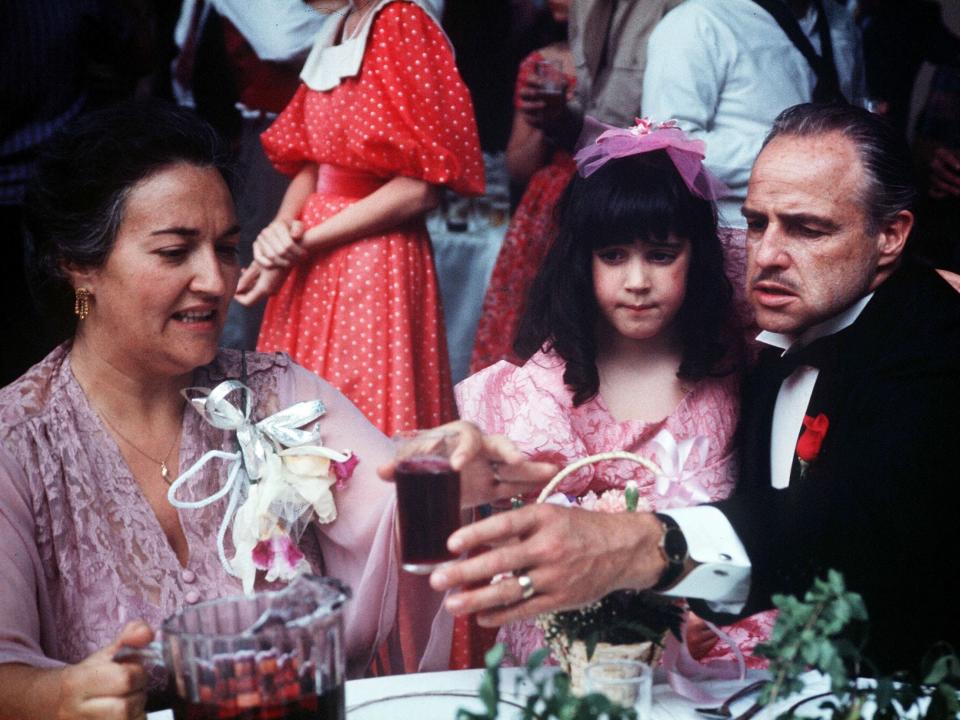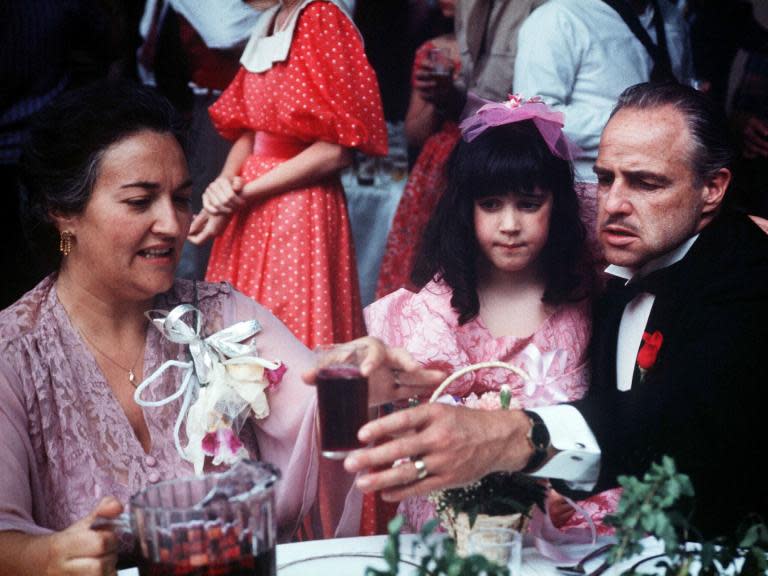Morgana King: Jazz singer who gained famed playing Marlon Brando’s wife in ‘The Godfather’
There were few white performers in the Crystal Caverns nightclub in Washington in 1946, so Morgana King pretended she was Creole.
“Are you sure you’re Creole?” they said. The 16-year-old was forced to admit she was Sicilian.
“Well,” they said. “That’s good enough,” she recalled. So she was billed as the “Creole songbird from the Ramparts section of New Orleans”.
King, who has died aged 87, would go on to be imprinted onto the psyche of millions as Marlon Brando’s very Sicilian wife in 1972’s The Godfather – Carmela “Mama” Corleone. She returned to the role in The Godfather Part II in 1974.
Overcoming faux-reluctance to sing at her daughter’s wedding, the matriarch she played expertly strutted out “Luna Mezz’o Mare”, exuding earthy old-country charm that set the tone for the film, contrasting as it did so starkly with the dark whispers of the underworld.
While staying at the Dunbar Hotel in DC as a teen, King had forged a friendship with Dinah Washington. Few white people stayed there, she said. “I was like her ward, her protege.”
Her mother, however, disapproved. She had raised her since the age of 11 when King’s father, Ignatius, an aspiring musician, died in an accident. Morgana was duly recalled to the James Moore High School in the Bronx.
Born Maria Grazia Messina de Berardinis, in Pleasantville, New York, she had to change her surname because her mother, Isadora, would not allow it to be tarnished – she thought nightclubs so seedy that she never went to watch her daughter perform. She subscribed to the “very old concept that to be in showbusiness you had to be a hard-nose broad”, King remembered.
But the singer later admitted: “I was working strip joints and toilets, what did I know? I thought they were nightclubs. I was on the bill with a snake charmer once on 52nd Street.” King was inspired by the gay clubs of Greenwich Village. “I was surrounded by gay people. They were my mentors.”
She was reportedly renamed “Morgana” by mob boss Frank Costello, who owned a club she worked at, the Greenwich Village Inn.
King began her career as a jazz singer in New York and Long Island hospitals and clubs for ex-service personnel.
Aged 17 she married jazz trumpeter Tony Fruscella who introduced her to the work of Charlie Parker and Billie Holiday. In 1950 they had a daughter, Graysan (who died in 2008). But Fruscella was an addict who left her paying the bills.
“I took care of my kid when my husband was stoned out of his bird,” she told James Gavin of the Jazz Times in 2016. After nine years, they divorced.
In 1956 she released the first of more than 20 albums, For You, For Me, For Evermore. Then she married Willie Dennis, a trombonist. On the trip together to Brazil they discovered the bossa nova – she was one of the first US artists to take to it.
“I’m Sicilian,” she said, “and I suddenly realised that all my life I’d been hearing bossa nova because it’s very Moorish, very Arabic, like the music my mother sang around the house. I feel that music.” Her mother Isadora was Jewish and had taken her daughter to Sephardic synagogue.
In 1965 King was nominated for best new artist at the Grammys, following her hit the year before with her album A Taste of Honey. But she was pipped to the post by The Beatles.
Her voice, with a range of four octaves, was later described by The New York Times as “an astounding melange of humming, singing and vocalising, creating tapestries of supple sounds that float in the air, that slither sinuously around a melody, that dip down to some visceral foundation or soar softly off into the stratosphere as an ethereal mutter”.
That year, Dennis died in a car accident. For three years, she lived in semi-retirement. “If I don’t have a man in my life, I can’t move,” she said.
Frank Sinatra stepped in to help lift her sense of purpose, according to James Gavin, signing her to his Reprise label. She channelled her grief into an album called It’s a Quiet Thing. In 1969 she suffered a near-fatal motoring accident herself and spend months in recovery.
She read Mario Puzo’s novel The Godfather two years before she was picked, without a screening, for a role in the film. “I knew I had to be a part of it,” she said. “I went to my hypnotist to programme and condition myself for becoming a member of the cast. It worked!”
King did not achieve mainstream success but this did not seem to bother her. “I am a rebel,” she said. “I am not a commercial artist. If I don’t believe in something, I won’t do it. I don’t believe in superstardom, publicity stunts and plugging records ... The only thing I believe in is music. I won’t forfeit anything for that.”
Morgana King, singer, born 4 June 1930, died 22 March 2018

 Yahoo News
Yahoo News 

